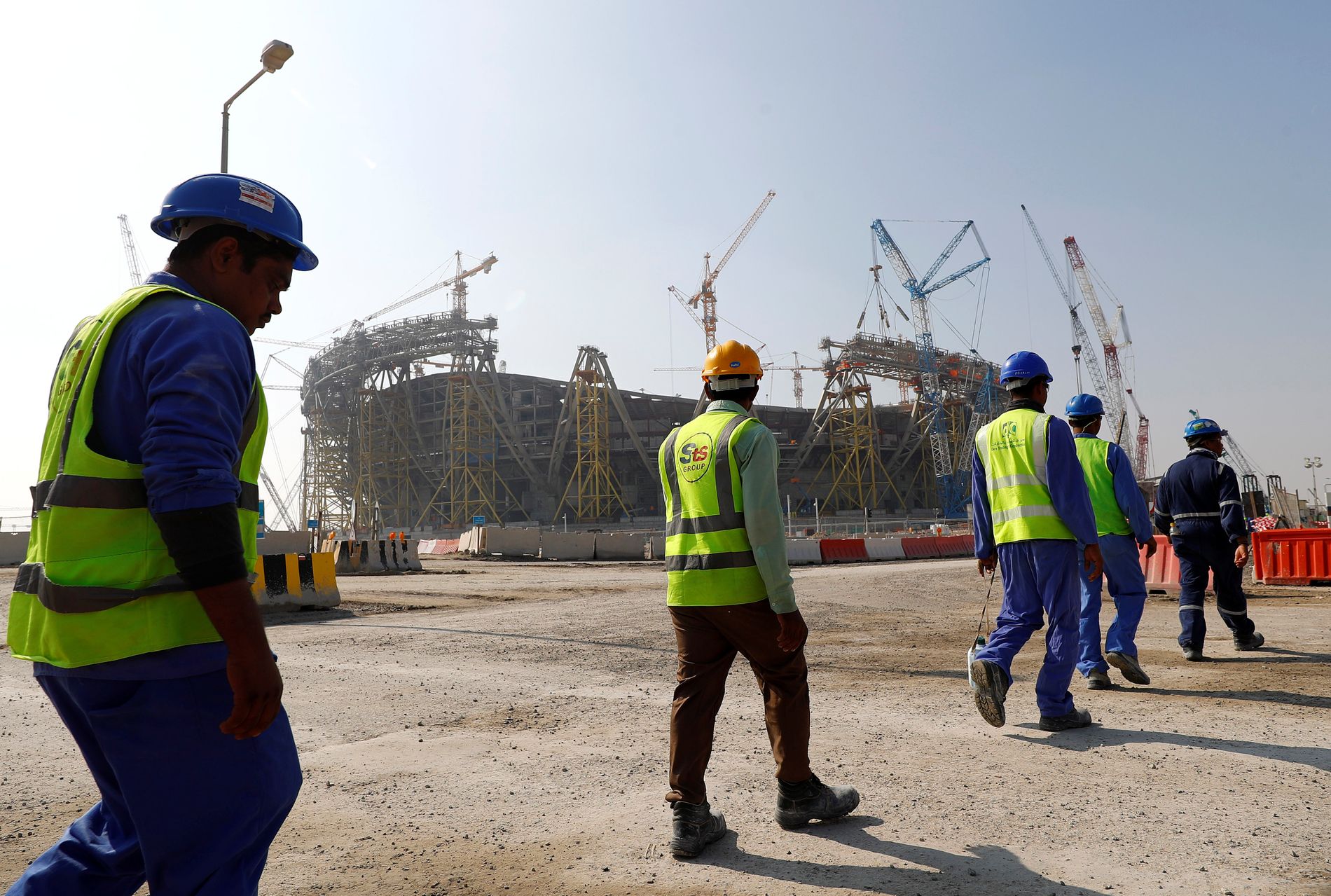Just 15 months before the World Cup in Qatar, Amnesty today releases a new disappointing report on working conditions in the small desert state.
According to the report, dead migrant workers in Qatar are rarely investigated by the authorities. As many as 70 percent of deaths are labeled “natural death” or “heart problems.”
– Experts tell us that it is equally good to say that “a person is dead”, says John Peder Egenæs to VG.
He is Secretary General of Amnesty Norway and has long been involved in issues related to working conditions in Qatar.
– When we know that it is dangerous to work in such high temperatures, and as high humidity as it is in Qatar, we suspect that many of these men die as a result of the work they do in the country, Egenæs says.
The Guardian published in February an article telling about 6,500 deaths among foreign workers in Qatar since the country was awarded the World Cup in 2010. Some posed questions about the figures in the case.
The article claimed that 69 percent of the deaths were of an unexplained nature. In practice, this corresponds to the figure – 70 – that Amnesty is now presenting.
– The authorities in Qatar evade themselves and the employers responsibility for these people when we know that they may have died at work. And we have to get to the bottom of that, Egenæs thinks.
The article in February helped kick-start a comprehensive Norwegian debate on a possible boycott of the World Cup. Norwegian football turned their thumbs down for this during an extraordinary federal meeting before the summer.
Professor Dan Atar at the University of Oslo said in a VG interview in March that among guest workers who have died from heatstroke in scorching heat in Qatar, probably several hundred such deaths could have been avoided since the country was awarded the 2010 FIFA World Cup
Expectation for NFF
Already on Wednesday next week, the Netherlands is waiting for Ullevaal for Ståle Solbakken and the Norwegian national team.
– I expect the NFF to raise the Qatar issue to FIFA, and make demands on the authorities in Qatar, Egenæs says.
He says that the authorities in Qatar have come up with legislative changes for the better, most recently in May this year. But much remains to be done.
The Amnesty summit is asking for statutory work breaks for workers, increased protection against heat and humidity outdoors, and that all deaths must be investigated.
– If someone dies at work, the family in the home country must be compensated. Today, we instead have examples of them being left with the debt that the worker incurred to be able to afford to travel to Qatar, says Egenæs.
He is keen to keep up the pressure on Qatari authorities ahead of the 2022 World Cup.
Fear the time after the World Cup
Elsewhere in the world sits Malcolm Bidali, who received a lot of attention when he was abducted and placed in custody by the Qatari authorities this spring. The foreign worker Bidali had blogged critically about the working conditions he experienced in the country.
Now he is free and has written a new post about the 12 weeks he was in custody.
– I can not help but think about what awaits the migrant workers after the World Cup. Whether workers will continue to live in appalling conditions, whether they go months without pay, whether they cannot change jobs as they wish or whether workers do not experience legal certainty: What happens when no one follows anymore? asks Bidali.
And:
– If I was unfairly arrested and fined on an unfair basis – while everyone’s eyes were on Qatar, what happens when no one is watching anymore?
Qatar disputes the content of the report
“We neither agree nor support Amnesty’s position against Qatar,” a spokesman for Qatar’s communications department wrote to VG.
Qatar claims that the reforms introduced since they were awarded the World Cup have benefited more than one million people – and aims to have positive ripple effects in the region.
– Contrary to what Amnesty reports, the injury and mortality statistics that Qatar uses are in line with international practice and they have set a new standard for the region. The fact that Amnesty insists that Qatar should extend beyond this is unparalleled.
– Qatar wants […] do not be influenced by organizations that want to discredit the progress we have made.
–

